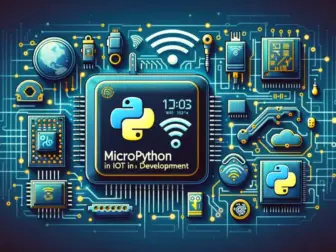Tag - AI integration in IoT
The Impact of AI Integration in IoT: Revolutionizing the Future of Connectivity and Automation
In recent years, the integration of Artificial Intelligence (AI) in Internet of Things (IoT) systems has been revolutionizing the way we interact with technology and the world around us. AI-powered IoT devices have the potential to drastically improve efficiency, productivity, and convenience in various industries and aspects of our daily lives.
One of the key benefits of integrating AI into IoT is the ability to enhance decision-making processes and automate tasks that were once done manually. AI algorithms can analyze large amounts of data collected by IoT sensors and devices in real-time, providing valuable insights and predictions that can optimize operations and improve overall performance. This level of intelligence and automation can lead to cost savings, increased productivity, and better decision-making in industries such as manufacturing, healthcare, transportation, and more.
Furthermore, AI integration in IoT enables the development of smart and responsive systems that can adapt to changing conditions and user preferences. For example, smart homes equipped with AI-powered IoT devices can learn and anticipate the habits and preferences of their occupants, adjusting settings for lighting, temperature, and security automatically. This level of personalization and adaptability not only enhances user experience but also increases energy efficiency and security in the home.
AI-powered IoT devices are also driving innovation in the healthcare industry by enabling remote patient monitoring and personalized treatment plans. Wearable devices equipped with AI algorithms can track vital signs and health metrics in real-time, alerting healthcare providers of any abnormalities or changes in a patient’s condition. This level of continuous monitoring and personalized care can lead to early detection of health issues, better treatment outcomes, and improved patient satisfaction.
However, the integration of AI in IoT also raises concerns about privacy, security, and ethical implications. As AI-powered IoT devices collect and analyze vast amounts of personal data, there is a growing need for robust security measures and data protection policies to safeguard sensitive information from cyber threats and unauthorized access. Additionally, there is a need for transparency and accountability in how AI algorithms are developed and used to ensure fairness, accountability, and ethical decision-making.
In conclusion, the integration of AI in IoT holds immense potential to revolutionize the future of connectivity and automation in various industries and aspects of our daily lives. By leveraging the power of AI algorithms and IoT devices, we can drive innovation, improve efficiency, and enhance user experiences in ways that were once thought impossible. However, it is crucial to address concerns around privacy, security, and ethics to ensure that the benefits of AI integration in IoT are realized responsibly and ethically.
